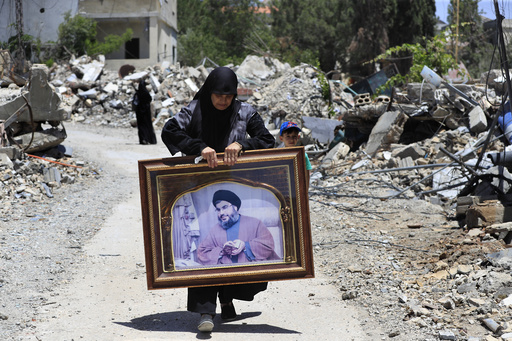
The recent intense exchange of fire between Hezbollah and the Israeli military has sparked concerns about a potential regional conflict extending beyond the already volatile border. Lebanon, in particular, faces significantly greater risks compared to the 2006 war with Israel, as the country has been grappling with prolonged political and economic crises, leading to issues such as crippling debt, unstable electricity supply, a fragile banking system, and widespread poverty. With Hezbollah’s increased military power, there are apprehensions that a new conflict could result in even more devastating consequences.
The ongoing clashes, initiated shortly after the Israel-Hamas conflict in Gaza, have mainly occurred in border areas. Nevertheless, as fears of a broader war loom, Lebanon has been hurriedly preparing by stocking hospitals with essential supplies and readying public schools to serve as shelters for those in need of refuge. Following a rare Israeli airstrike in southern Beirut that killed a senior Hezbollah commander, various humanitarian organizations have been working closely with the Lebanese government to plan and implement relief efforts.
A contingency response plan, drafted by the UN and the Lebanese government, outlines potential scenarios of the conflict, projecting costs of $50 million per month for a limited escalation akin to the 2006 war, and $100 million for a full-scale war. Funding for these emergency situations is expected to come from creditors and aid organizations, as Lebanon struggles to care for its existing displaced population and those residing in conflict zones, incurring monthly costs of approximately $24 million. Despite the recent attacks, Lebanese officials have affirmed their commitment to the established plan, which encompasses various potential outcomes.
Lebanon’s financial and logistical challenges are being exacerbated by decades of corruption and political stagnation, compounded by the devastating impact of the COVID-19 pandemic and the Beirut port explosion in 2020. The country’s reliance on aid groups for basic services and the deteriorating living conditions of its citizens underline the urgent need for external assistance. Furthermore, hosting over a million Syrian refugees adds another layer of complexity to Lebanon’s humanitarian crisis, as the health system struggles to accommodate the additional population in the event of escalated conflict.
The enhanced military capabilities of Hezbollah, including a significant increase in rocket arsenal and access to advanced weaponry, have further raised concerns about the potential impact of a prolonged conflict. As efforts for a cease-fire agreement in Gaza continue, there is hope that tensions in southern Lebanon may de-escalate. Hezbollah has indicated its willingness to cease border attacks if a truce is achieved in Gaza, offering a glimmer of hope for a reduction in hostilities.
